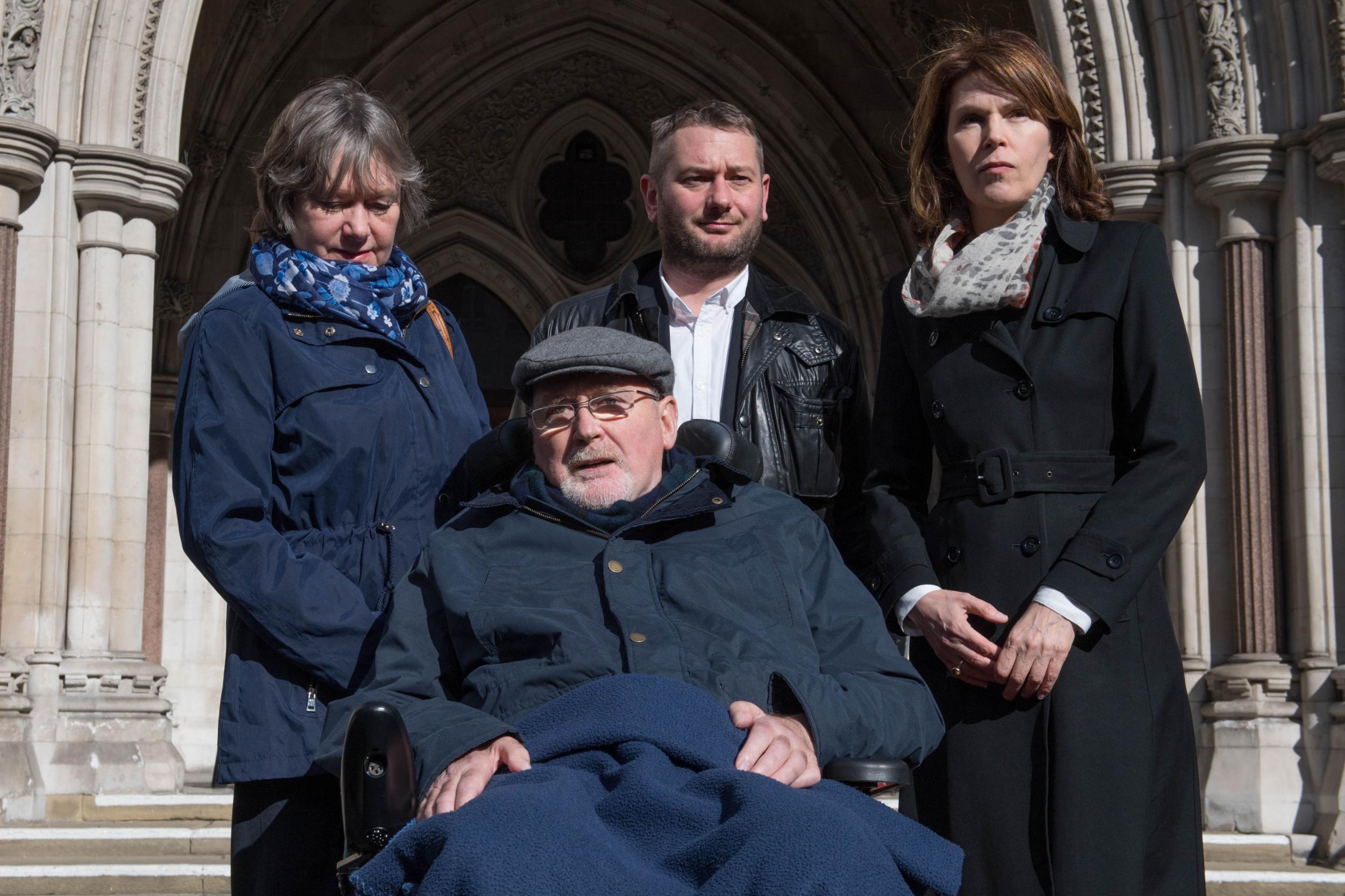Terminally ill man launches legal challenge against UK ban on assisted dying
Noel Conway, 67, wants to be prescribed a lethal dose when his health deteriorates further

A man who is terminally ill with motor neurone disease is launching a legal challenge in the High Court to fight for his right to die.
Noel Conway, 67, from Shrewsbury, wants a doctor to be allowed to prescribe a lethal dose when his health deteriorates further.
The retired college lecturer was diagnosed with the disease in November 2014 and is not expected to live beyond 12 months.
He is now bringing a judicial review over the current law on assisted dying, saying he wanted to say goodbye to loved ones “at the right time, not to be in a zombie-like condition suffering both physically and psychologically”.
When he has less than six months to live and retains the mental capacity to make the decision, he wishes to be able to enlist assistance to bring about a “peaceful and dignified” death.
He wants a declaration that the Suicide Act 1961 is incompatible with Article 8, which relates to respect for private and family life, and Article 14, which protects from discrimination.
Currently, any doctor who helped him to die would face up to 14 years in prison.
Mr Conway, who is supported by Dignity in Dying, has already been to the Court of Appeal to win the right for what he calls his “fight for choice at the end of life” to proceed.
He said: “I am more determined than ever to continue. I have the support of my loved ones and many thousands of others behind me; people who have donated over £90,000 towards my legal costs and sent heart-warming messages of encouragement to me and my family.
“I have lived my whole life on my own terms, in control of the choices and decisions I make.
"Why then, when I am facing my final months, should these rights be stripped away from me, leaving me at the mercy of a cruel illness?"
He added that "how and when" he dies should be up to him, and that it would provide him and others in his position "great reassurance and comfort" to have an option of an assisted death.
“I know I am going to die anyway, but how and when should be up to me. To have the option of an assisted death available in this country would provide me and countless others with great reassurance and comfort," Mr Conway said.
“It would allow me to decide when I am ready to go, rather than be forced into a premature death by travelling to Dignitas at great emotional and financial cost, or to suffer a traumatic, drawn-out death at home.”
The case follows that brought by Tony Nicklinson, who suffered from paralysis after a stroke.
Mr Conway's case differs in that he has a terminal illness and his legal team is setting out strict criteria and clear potential safeguards to protect the vulnerable from any abuse of the system.
The Nicklinson case was ultimately dismissed in 2014 by the Supreme Court, which said it was important that Parliament debated the issues before any decision was made by the courts.
After debates in the House of Commons and the House of Lords, Parliament decided, at least for the moment, not to provide for legislative exceptions to the 1961 Act.
Mr Conway will not attend the five-day hearing in London before Lord Justice Sales, Mrs Justice Whipple and Mr Justice Garnham, because of his poor health.
It is expected that a ruling will not be given until the autumn.
Additional reporting by PA
Subscribe to Independent Premium to bookmark this article
Want to bookmark your favourite articles and stories to read or reference later? Start your Independent Premium subscription today.

Join our commenting forum
Join thought-provoking conversations, follow other Independent readers and see their replies